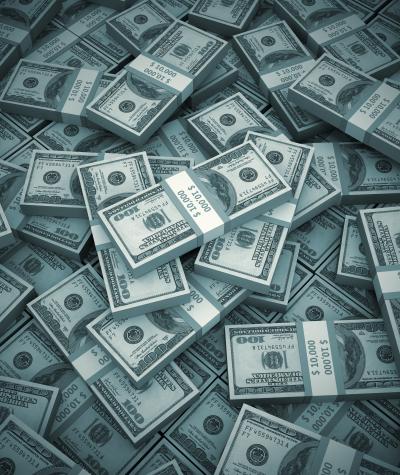Throughout 2024, Campaign Legal Center has worked to identify and combat attempts to undermine the democratic process of our elections and safeguard all Americans’ right to cast a well-informed vote this fall.
Some of these threats are newly developing, like artificial intelligence (AI) spreading misinformation to voters or candidate's campaigns using new strategies to coordinate with outside groups. But some of these threats, like secret spending, are troubling facets of our election system that prove year after year to be eroding our democratic process.
Since the Supreme Court’s decision in Citizens United, super PACs and their gargantuan spending have become a fixture in U.S. elections. Thanks to that decision and subsequent others, corporations and individuals no longer have a ceiling on contributions, and super PACs can spend unlimited amounts so long as it is “independent” from candidate campaigns.
This makes it even more important to have disclosure laws that provide the public with timely, accessible information on who is spending money to sway their vote.
That’s why super PACs are required to disclose their financial activities by reporting their fundraising (and spending) to the Federal Election Commission (FEC).
But that transparency is undermined when some of the largest contributions to super PACs come from secretly funded “dark money” nonprofits, which themselves keep their donors hidden from the public.
Dark money refers to the secret spending in elections conducted by wealthy special interests who use tactics to inject massive amounts of secret money into elections, earning them outsized political influence and successfully concealing their role from voters. Dark money groups provide a pathway for this secret spending.
Super PACs and dark money groups work closely together.
While super PACs are required to disclose the sources of their funds, they are not required to go further than the name on the check. And while that name can be a person, it can also be a corporation, a labor union, or one of a variety of other entities, including politically active nonprofits that are not required to disclose their donors. So, while super PACs are ostensibly transparent in their reporting, a closer look reveals that often isn’t the reality.
Many super PACs raise a significant portion of their funds — and sometimes the entirety — from one entity. Making super PAC contributions through a dark money group is an easy and common route to conceal the true source of the super PAC’s funding. Indeed, dark money groups often work quite closely with an associated super PAC.
For example, SAG PAC registered with the FEC on June 24, 2024, and promptly spent $7 million opposing RFK Jr. The PAC is primarily funded by a 501(c)(4) named Securing American Greatness, which contributed $15 million.
Meanwhile, Future Forward PAC — which has raised nearly $400 million so far this cycle supporting the Democratic ticket — received $205 million from dark money group Future Forward Action in both direct and in-kind contributions (like staff time and overhead).
Because both Securing American Greatness and Future Forward Action are dark money groups, the origins of these contributions are not publicly disclosed.
A convenient way to get involved while hiding political self-interest.
For some wealthy special interests, dark money groups are one way to influence high-stakes elections while avoiding accountability — both for themselves and for the candidates who benefit from their secret efforts.
Majority Forward, a Democratic-aligned dark money group closely allied with Senate Majority Leader Chuck Schumer, was the primary funder of Last Best Place PAC, a super PAC that spent millions of dollars attempting to upend the Republican Senate primary in Montana.
Billionaire philanthropist and self-proclaimed nonpartisan Bill Gates quietly donated $50 million to the 501(c)(4) arm of Future Forward, one of the biggest spenders in support of Vice President Harris, and his donation will never appear on a public campaign finance filing.
Deep pockets are helping super PACs become even more consequential in our politics.
The consistent relationship between dark money groups and super PACs has consequences beyond changing the landscape of our elections. Public officials are acutely aware that the megadonors behind the independent spending vehicles that can mobilize millions to get them elected are the same groups that they are beholden to in-office — including those donors who aren’t disclosed publicly.
When senators were seeking methods to kill the For the People Act — the largest election reform bill in a century — they sought advice from the leaders of dark money group Stand Together Chamber of Commerce on how to combat the widely popular effort. This group is one of the large sum donors of Americans for Prosperity Action, the Charles Koch affiliated super PAC that routinely outspends most outside groups in elections.
For wealthy special interests looking to earn political favor, supporting super PACs is an attractive way to put their millions to use. Billionaire tech mogul Elon Musk has been linked to the 501(c)(4) Building America’s Future, a major contributor to at least two super PACs heavily involved in digital advertising to target voters for the Republican nominee. Former President Trump has reportedly offered Musk a prominent role in the federal government under his administration.
Combating this wave of money requires us to reinforce transparency measures at every turn.
Fortunately, Congress has a way forward to ensure that our next presidential election will not see double or even triple the dark money spending we’re seeing now. The Democracy Is Strengthened by Casting Light on Spending in Elections (DISCLOSE) Act would bring new disclosure requirements to campaigns — including requiring organizations that contribute $10,000 or more during an election cycle disclose their donors.
Shining a light on dark money is a promising step toward reforming a campaign finance system that has encouraged secrecy. We need real transparency about who is spending big money on elections so that politicians can no longer receive unlimited secret money from wealthy special interests to support their campaigns.


